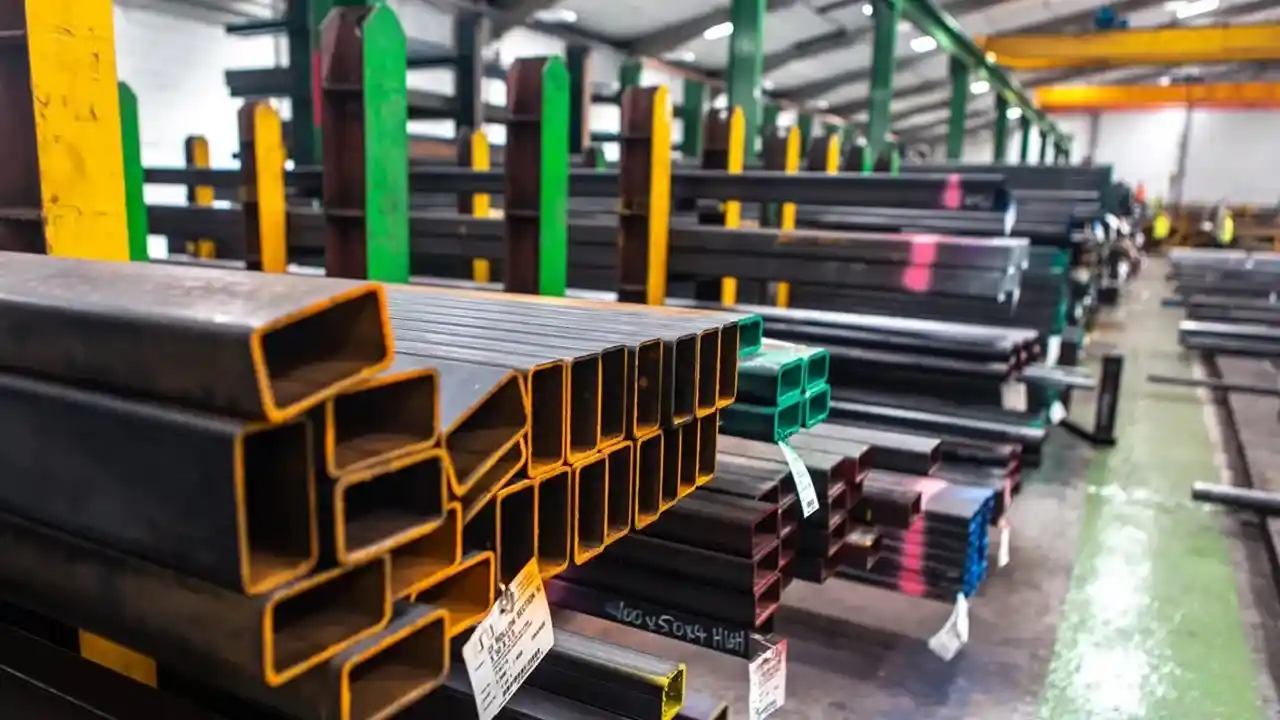03 Jun 2024

Steel stockholders play a vital role in this supply chain, acting as intermediaries between steel manufacturers and end-users. They ensure the availability of steel products, manage inventory levels, provide value-added services, and facilitate efficient distribution across the country or region. In this blog, we'll discuss steel stockholders, exploring their critical functions, the challenges they overcome, and how they bridge the gap between manufacturers and the end-users across the UAE. Steel stockholders supply large quantities of steel products needed for building projects. They act as middlemen in the steel supply chain, bridging the gap between steel producers and end-users such as construction firms, manufacturers, and fabricators. Steel stock holders offer a wide range of steel products, from basic forms like bars, sheets, and plates to customized shapes and sizes, catering to diverse customer needs. Stockholders maintain a diverse inventory of steel products to ensure availability and timely delivery. They carefully manage stock levels to meet fluctuating customer demand, replenishing their inventory as needed to avoid shortages or oversupply. Steel stockholders & merchant offer value-added services such as cutting, slitting, shearing, and bending to customize steel products according to specific customer requirements. This processing eliminates the need for end-users to invest in specialized equipment. Stockholders employ knowledgeable staff with expertise in steel products, applications, and fabrication processes. They can provide valuable technical guidance and support to customers, assisting with product selection, application advice, and problem-solving related to steel usage, ensuring customers make informed decisions. Steel stockists have extensive distribution networks and logistics capabilities to efficiently transport steel products across the country or region. They handle packaging, loading, transportation, and timely delivery to construction sites, fabrication shops, or manufacturing facilities, ensuring steel reaches end-users when and where they need it. Steel stockholders bridge the gap between manufacturers and end-users by breaking down bulk orders, providing customized solutions, ensuring efficient distribution, maintaining inventory for urgent demands, and offering technical expertise in selecting suitable steel products for optimal performance, addressing production-consumption mismatches, geographic challenges, lead time management, and technical support needs. Steel stock holders play a crucial role in ensuring the availability and accessibility of steel products to end-users across various industries. By maintaining a diverse inventory, they can quickly respond to customer demands, eliminating the need for end-users to source steel directly from manufacturers, which can be time-consuming and inefficient. Steel stockholders play a crucial role in mitigating risks associated with supply chain disruptions. By maintaining a diverse inventory, they act as a buffer against unexpected demand fluctuations, production shortfalls, or transportation delays, ensuring a consistent supply of steel products to end-users. Steel stockholders offer flexibility to both manufacturers and end-users. They can absorb excess production from manufacturers during periods of low demand and provide additional supply to end-users during periods of high demand, helping to balance the market and maintain stability. Steel stockholders can leverage their purchasing power to negotiate favorable terms with manufacturers, benefiting from economies of scale. This can result in cost savings that can be passed on to end-users, making steel products more affordable and accessible. With their extensive experience in the steel industry, stockholders possess in-depth knowledge of various steel grades, properties, and applications. This expertise allows them to advise and guide end-users in selecting the most suitable steel products for their specific requirements, optimizing performance and cost-effectiveness. Steel stockists often have robust quality control measures in place to ensure that the steel products they distribute meet industry standards and regulatory requirements. This provides end-users with added confidence in the quality and safety of the steel products they receive. By closely monitoring market trends, demand patterns, and industry developments, steel stockholders can provide valuable insights and forecasting to both manufacturers and end-users, enabling them to make informed decisions and plan their operations more effectively. Steel stockholders play a crucial role in the steel supply chain by ensuring availability, providing customized products, offering technical expertise, and enabling efficient distribution. They manage inventory levels to meet changing demands, process steel for specific needs, and advise customers on selecting suitable steel. Steel distributors and stockholders bridge the gap between manufacturers and end-users by breaking down bulk orders, mitigating supply risks, offering flexibility, leveraging purchasing power for better pricing, maintaining quality control, and providing valuable market intelligence. Their expertise and strategic position make steel merchants and stockholders important in facilitating a smooth flow of steel products across industries. Steel stockholders bridge the supply chain gap, offering inventory management, processing, expertise, and distribution. Their strategic role is vital. To learn more about the specific steel products they handle, read our blog "Types of Steel Products Handled by Stockholders.Who are Steel Stockholders?
Functions Of Steel Stockholders
Inventory Management:
Processing and Customization:
Technical Expertise:
Distribution and Logistics:
Bridging the Gap between Manufacturers and End-Users:
Importance of Steel Stockholders in the Supply Chain
Availability and Accessibility:
Risk Mitigation:
Market Flexibility:
Financial Advantages:
Expertise and Industry Knowledge:
Quality Control:
Market Intelligence:
Conclusion